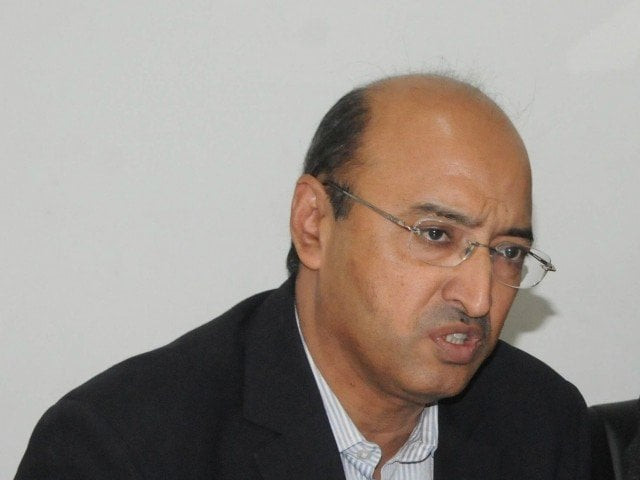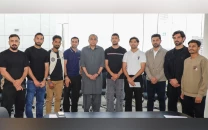Controversial move: CPLC to be shifted to Central Police Office
Sindh govt also decides to remove Ahmed Chinoy.

CPLC Sindh chief Ahmed Chinoy. PHOTO: EXPRESS
The Sindh Government removed on Tuesday the Citizens Police Liaison Committee (CPLC) chief Ahmed Chinoy and decided to shift the offices from the Governor House to the Central Police Office (CPO).
The announcements came in light of the decisions made in the apex committee meeting, chaired by Chief of Army Staff Raheel Sharif on May 14. "After the law and order meeting, the chief minister, who recommends the name of the CPLC chief, had asked the governor to remove Chinoy from the post," said a Sindh government official privy to the matter. Subsequently, the governor had asked Chinoy to tender his resignation. On the other hand, Chinoy claimed he had resigned from the post himself and no one had fired him.
These developments have come days after officials of the military and intelligence agencies had alleged that the CPLC, under the leadership of Ahmed Chinoy, was no longer an apolitical statutory institution. Rather, it had turned into a political office with its chief working under the influence of a political party, they had warned.
"Currently, law enforcers and the general public have no easy access to the Governor House which is why it was decided to shift the CPLC office to the CPO," said a senior official in the home department, adding that the police will have no influence over the committee's affairs and the latter will work independently without political or police influence.
Counter-allegations
Not everyone is, however, particularly pleased with the decision. The most vociferous were the former chiefs of the committee, who have seen it become a stronger liaising institution over time. "Why is the CPLC being shifted to the police head office?" questioned Jamil Yusuf, a former CPLC chief. "The CPLC is an honorary institution. It should be apolitical. If the government had any objections with the chief, they should have removed him rather than shifting the offices," he reasoned, adding that now that the offices were to be located in the CPO, there would be direct influence of the police in its functioning.
Yusuf decried that citizens will be wary of visiting the committee's offices in the CPO. "The basic function of the CPLC was to act as a bridge between the police and citizens. How can it function as a bridge when it is located inside the premises of the police chief's office?" he questioned. "It would be better to just shut down the CPLC instead of moving it."
His words were echoed by another former chief, Sharfuddin Memon. "The CPLC should remain where it is," he said, adding that individuals may come and go but the base of an institution should not be disturbed.
Liaising
The Citizens Police Liaison Committee (CPLC) was set up for one purpose — to act as a bridge between the citizens and law enforcement agencies (LEAs). Its inception came about at a time when the morale of the LEAs and the citizens was at an all-time low due to the precarious law and order situation in the city. Two decades on, the ideal that its patrons had in mind have been perceptively set aside by its operatives today.
For when the committee was set up, the patrons had designed it to primarily serve the public. Somewhere in the middle, politics crept in and has marred its functioning since. As per the charter, the CPLC's advisory board recommends the name for the chief to the governor after whose approval, the chief minister signs off on the name.
The CPLC was established in Karachi in September 1989 during the first tenure of Benazir Bhutto as the prime minister of Pakistan. At the time, there was a severe deficit of trust between the citizens and the police. A brainchild of the then Governor of Sindh, Justice (retd) Fakhruddin G Ibrahim, the committee was meant to be a non-political institution, operationally independent and managed by dedicated and concerned citizens offering their honourary services.
Published in The Express Tribune, June 3rd, 2015.



1733130350-0/Untitled-design-(76)1733130350-0-208x130.webp)















COMMENTS
Comments are moderated and generally will be posted if they are on-topic and not abusive.
For more information, please see our Comments FAQ